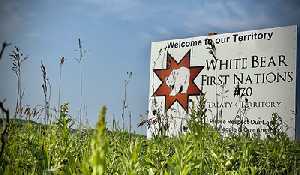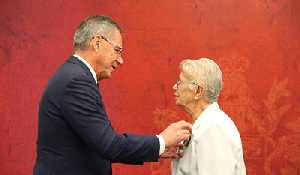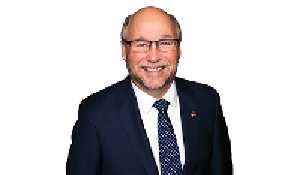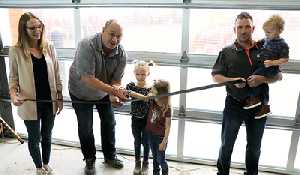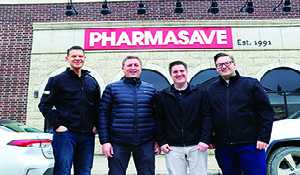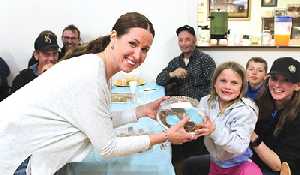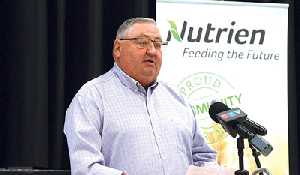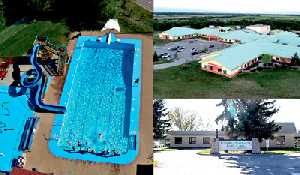Moosomin welcomes new medical resident
August 9, 2022, 4:01 pm
Sierra D'Souza Butts, Local Journalism Initiative Reporter
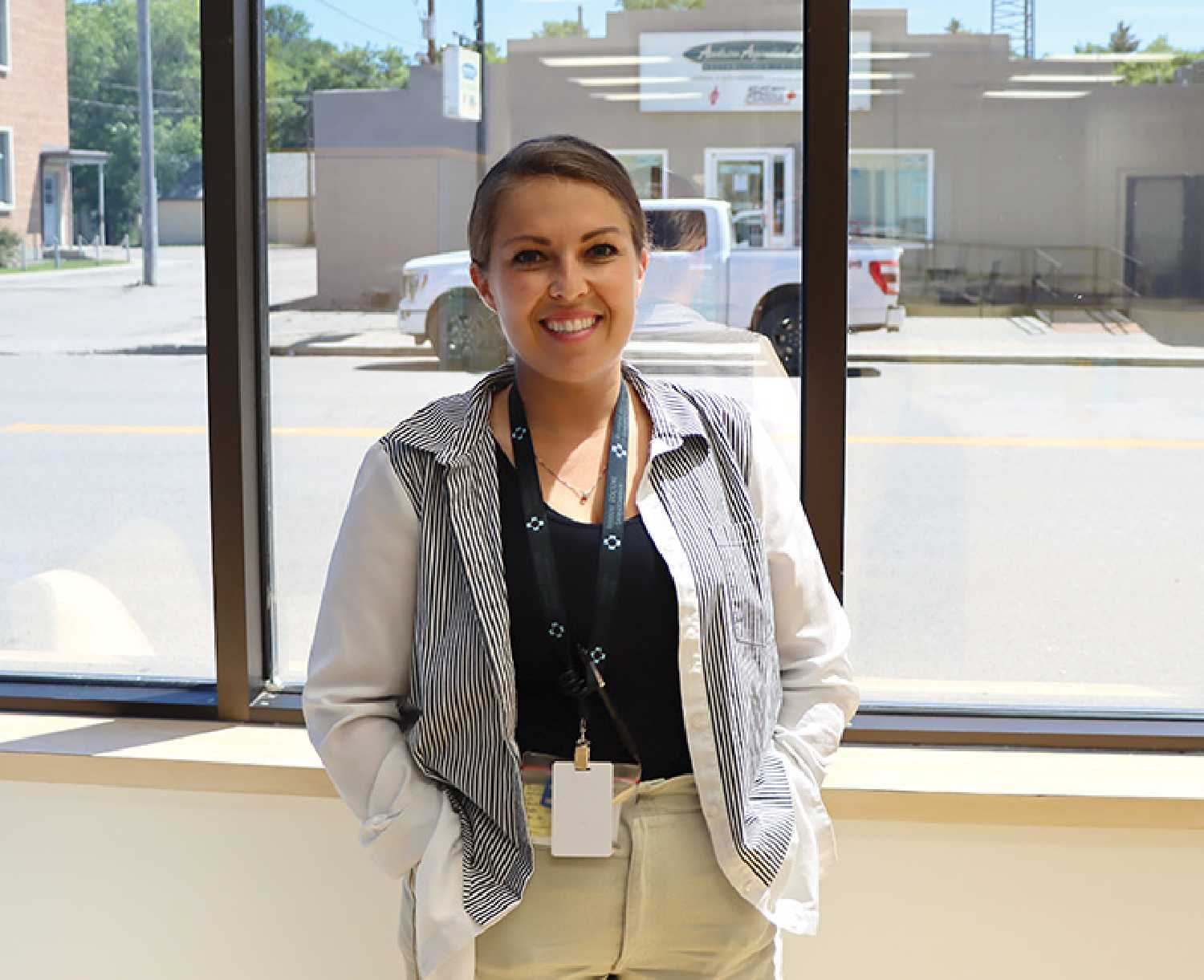

Moosomin’s first medical resident as part of the Family Residency Training program, Dr. Cara Fallis, was raised in Toronto, received her medical training in the Philippines, and chose Moosomin as the location where she would like to complete her residency.
The hosting of medical residents in Moosomin is an extension of the province’s medical residency program.
After going through the Canadian Resident Matching Service (CaRMS) and various interviews, Fallis said she felt the most comfortable coming to Moosomin for her medical residency.
“I was interviewed by one of the doctors in Regina, but also on the interview panel was Dr. Arvi and he delivered a really comfortable experience,” she said.
“I felt like it was one of those interviews where afterwards you feel that you did really well, but it was because he made me feel so comfortable that I was able to convey the knowledge that I had, and convey who I am as a person really easily.
“I didn’t hesitate at all when we had to go through the ranking process, I ranked southeast Saskatchewan number one. I decided on Moosomin for a few reasons, one that I knew there was some surrounding First Nations communities that come here for health care, and I have a desire to get a better understanding of serving the First Nations community.
“Also there’s a pool right in the middle of town, it’s a really nice place and a really nice community to raise a family. I have a son who’s five years old, I wanted to make sure I was moving to somewhere that would feel comfortable for everyone. We lived in the Philippines for so long too that as soon as we found out Moosomin has a Filipino population, that was also attractive to us.”
Fallis is from Toronto, but lived in the Philippines for the past few years while completing medical school.
“I did my medical studies in Manila, in the Philippines, it’s a really big city. I’ve had a long-standing history of being interested in the social determinants of health. In Manila I was able to see a spectrum of different barriers to access health care, and resource restraints that influenced health care. I also recognized that rural living was a very important and often unrecognized social determinate of health.”
Happy with by Moosomin health care foundation support
Fallis said she was happy with the community’s support after receiving help from the residency program and the Moosomin and District Health Care Foundation, who helped welcome the residents and their families into town.
“I don’t have enough good things to say about Wendy (Lynd), the foundation was exceptional. They helped me really quickly find a place to live, that is a nice place at an affordable cost,” Fallis said.
“They also welcomed me into town by making sure my fridge was stocked when I arrived, they’ve been really helpful.
“They’ve made valuable introductions and made sure all of our needs were taken care of, again, something that wouldn’t happen in a big city program.”
Fallis explained how the residency program will work. “The residency program is a period of two years and since I’m an international graduate I will be required to complete a return of service, which is another two years,” she said.
“It starts off being in all family medicine blocks at the beginning, but later in the year I’ll have to go rotate into the specialities of anesthesia, obstetrics, surgery, and pediatrics. Those will all be done in Yorkton just because that’s where those specialities exist.
“I’ll leave Moosomin for those, then there’s a period of six weeks in the spring where I will have elective time, I can decide where in the province I may like to go for that.
“Usually people look for elective exposure where they might be able to get a job later, and forging those relationships, but for the first four or five months my focus will be in family medicine in Moosomin which will allow me to get comfortable in this setting.”
Fallis said there are many benefits to doing her residency in Moosomin.
“I’m really excited by the opportunity to get to know patients, not only as my patients, but also have an understanding of how they live their lives and being able to interact with them because we’re in a small community,” she said.
“For example seeing parents who are dropping their kids off at karate, that just doesn’t really happen where I grew up in Toronto. In Toronto it’s sort of every man for themselves, you would be lucky to see your doctor outside the clinic, on the subway, just once in your whole life, it just wouldn’t happen. The opportunity to get to know and understand the community, I think that will help me be a better doctor in knowing how to manage my patients in a way that works for them and jives with their lifestyle.
“As well me understanding what the diet is, what they do for work, what their kids do, where their kids go to school, that sort of thing, I think that’s a small town advantage. Also I’m in an academic setting which doesn’t feel extremely academic at all because there’s really good collegiality with my colleagues, even the really senior colleagues have made me feel really comfortable.
“That one-to-one mentorship is really present whereas in bigger programs, especially academic program in cities, you don’t get much into a mentorship level with anyone until second year, when they need to help coach you into transition to practice.”
How Fallis developed an interest into rural medicine
After graduating from medical school and moving back to Canada, Fallis developed an interest in rural medicine.
“I gathered an interest in rural medicine, when I graduated and came back to Canada, I did some rotations both in the city, but I also went very far north in Ontario, in Red Lake,” she said.
“I did a rotation at the Red Lake hospital and I really fell in love with rural medicine and what rural generalism can look like. I think when you conceptualize family medicine it should be a full scope, and should be able to provide a lot of the care that you need from a primary point of view.
“Often in cities what we see is very limited scope, and it was in the rural rotation where I realized what the full scope of family medicine really looks like in Canada. I recognized that if I want to participate in that, then I would have to be willing to do rural practice and that’s where I would want to go.”
She talked about the advantages of having a residency program in a rural community.
“My experience here in Moosomin has been very limited I’ve just been here for a couple of weeks, but from what I can see there’s a lot of advantage to having one practice where all of the colleagues work together,” Fallis said.
Fallis said she is looking forward to her residency and meeting the people of Moosomin.
